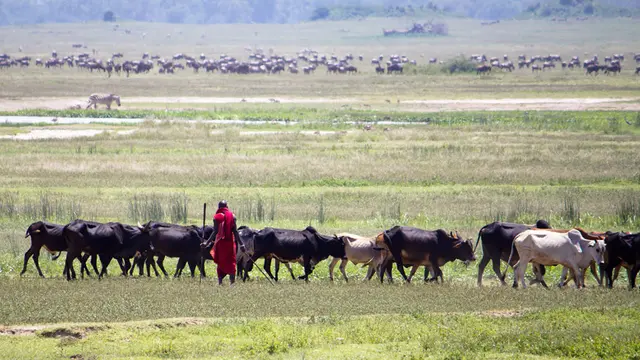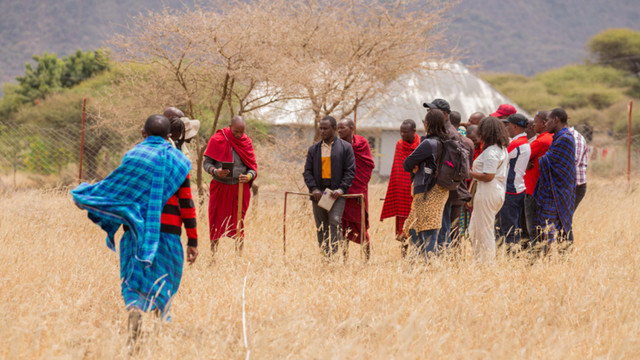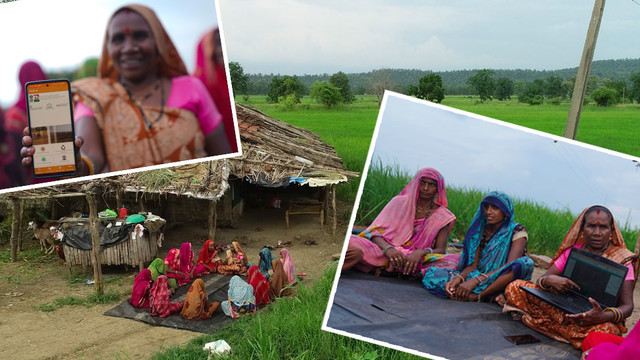The International Centre for Climate Change and Development
Building long term capacity for adaptation to climate change in Bangladesh and across the Global South.
Beth Henriette was a programme manager in IIED's Climate Change research group until January 2024

Participants in a 2016 short course for government officials from developing countries organised by ICCCAD and partners in Dhaka (Photo: ICCCAD, Creative Commons via Flickr)
IIED, together with the Independent University, Bangladesh and the Bangladesh Centre for Advanced Studies (BACS), set up the International Centre for Climate Change and Development (ICCCAD) in 2010, with the aim of build long-term capacity for responding to climate change in developing countries.
ICCCAD has become a leading research and capacity building organisation working on climate change and development in Bangladesh. It aims to build and lead a network of Southern-based partner institutes to providing education on climate change, adaptation and resilience.
The need for capacity building
There is an urgent need for expertise and increased capacity on climate change adaptation, especially in the least developed countries (LDCs).
Stakeholders working on poverty reduction, disaster risk reduction, and development need to deal with the adverse impacts of climate change and understand effective adaptation responses. As climate impacts multiply, it is imperative that there is a corresponding increase in the number of institutions that can foster and promote adaptation activities and build long-term capacity for resilience. Without such institutions, it is unlikely that effective adaptation can be achieved - especially in the Global South.
Our aims
ICCCAD was established to develop a world-class institution that is closely related to local experience, knowledge and research in one of the countries that is most affected by climate change. Bangladesh is at the frontline for finding ways to adapt to climate variability and risks. Innovative actions on climate adaptation are taking place at many levels, including those involving national government, sectoral agencies, NGOs and communities. Bangladesh is becoming a “living laboratory” on adaptation to climate change.
ICCCAD is intended to build capacity among stakeholders in Bangladesh, while also enabling people from other countries to benefit from training in Bangladesh, where they can gain direct knowledge of issues in a real-world context.
Partners and stakeholders
ICCCAD was set up as a joint venture with support from the Rockefeller Foundation and the UK's Foreign, Commonwealth & Development Office. The Centre's three partners offer wide-ranging expertise on development and adaptation projects, data and research - both in Bangladesh and internationally.
ICCCAD is headed by Dr. Saleemul Huq, a leading expert in climate change and development. Huq is a senior fellow at IIED and previously head of IIED's Climate Change research group.
IIED is continuing work to support ICCCAD’s transition to being a fully independent partner organisation, in particular developing the Centre's institutional capacities and financial sustainability. At the same time, IIED is continuing to work jointly with ICCCAD on a wide range of projects, including international conferences, short courses and networks.
How ICCCAD builds capacity
Masters degree in Climate Change and Development
ICCCAD has developed an M.Sc. in Climate Change and Development, awarded by ICCCAD’s host institution, the Independent University, Bangladesh. The degree program lasts for a year, and features distinguished international experts alongside IUB academics and others from Bangladesh.
The degree is designed to provide a postgraduate course of international repute, attractive to students from anywhere in the world who would prefer to study climate change in a developing country rather than in the West. Through the expertise of ICCCAD and its partners, students are exposed to relevant and grounded knowledge which they can share with other LDCs and their governments, donors and international NGOs. ICCCAD offers complementary experience for the MSc students via internships and job opportunities in various projects.
Learning events
ICCCAD delivers workshops and short courses for government officials, researchers, NGOs, donors, the media and the private sector.
ICCCAD delivers climate courses for government officials from developing countries. In 2017 worked with IIED, Action on Climate Today (ACT) and UNDP’s Bangkok Regional Hub, to deliver the second Regional Climate Finance Course. This course was designed for people working in finance and planning ministries, as well as representatives of National Designated Authorities for the Green Climate Fund.
Also in 2017, ICCCAD delivered the 6th short course on Developing future urban leaders from Municipalities. This course was especially designed for people dealing with climate impacts in urban areas. 21 participants from municipalities in Bangladesh, Nepal and Singapore, South Korea and the US attended.
Other activities have included training for trainers in Nepal, Nairobi and Senegal, training for LDC journalists on climate mitigation and the IPCC process, and training for LDCs on international negotiation processes.
Knowledge exchange
The ICCCAD also manages a Visiting Researcher Programme to foster the exchange of ideas between Bangladesh and international researchers and to stimulate international collaborative teaching and research efforts.
The Centre publishes policy briefs, journal articles and reports.
Additional resources
Climate Finance short course, Yousuf Mahid, Clare Stott (2016), ICCCAD report
Mainstreaming climate change resilience into development planning in Bangladesh, Mousumi Pervin (2013), IIED
Adaptation experts in training, Saleemul Huq (2012), IIED Reflect & Act
Partners
Independent University, Bangladesh (IUB)
Bangladesh Centre for Advanced Studies


